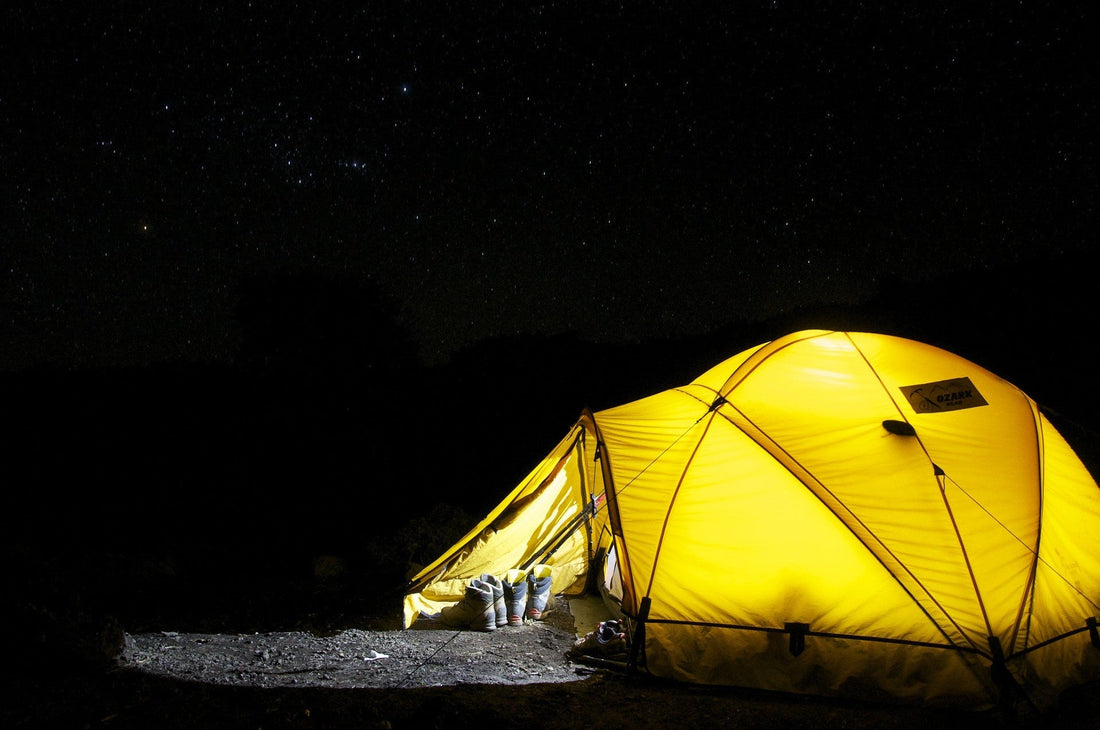
9 Safety Tips for a Successful Family Camping Trip
Share
Camping is a fantastic family activity year-round. Each season has unique challenges, and you can prepare specifically for autumn with our guide to Fall Camping Tips or brave the cold with our Winter Camping Tips. As you start planning any getaway, the following universal safety rules will help make it the best trip possible.
1. Update Your Vaccinations
Before you go anywhere, the CDC recommends making sure everyone's vaccinations are up to date. Like it or not, there are illnesses you or a family member could catch while you are out in the woods. It's better to be sure everyone is protected. This tip also applies to any pets you take along.
2. Pack Plenty of Safe Food and Water
Plan your meals for the trip in advance. The Travel Mamas blog recommends bringing all the food you plan to eat with you, while the CDC has a list of steps to take for preparing your meals safely while you are out there. Dried and dehydrated foods, canned items and spices are great things to pack. Make sure meals are nutritious and calorie-packed to keep everyone energized and in high spirits for all of your adventures.
Bring plenty of water to stay hydrated and put out campfires. Consider bringing a water purifier and/or large pan to boil water in case you run out.
3. Bring Protective Gear
Whether you are planning off-roading excursions, boating on the lake, or hiking through the woods, bring the appropriate safety gear to keep everyone safe--sturdy shoes, headlamps and flashlights, sunblock, life jackets, extra socks, hats, waterproof layers, etc.
If you’re bringing an off-road vehicle, make sure you have the right gear for riding and transporting your vehicle. Helmets, protective eyewear, gloves, long sleeves and long pants, boots that cover your ankles, loading ramps and ratchet straps are the essentials.
4. Know Your Poisonous Plants
If you or a family member is not already familiar with what poisonous plants could be in the area you are visiting, do some research before you go. Travel Mamas suggestions making sure everyone knows what those plants look like so you can avoid them (and some painful or uncomfortable situations) accordingly.
5. Protect Yourself and Wild Animals
While wild animals are beautiful to look at, it is best to leave them alone, no matter how gentle they look. Also, make sure the food you bring with you is stored in sealed containers that are out of reach in case they wander in. If you’re car camping, store food in your car at night. If you’re backpack camping, consider bringing a bear-safe cooler or hang food and trash high in a tree far from your campsite.
6. Protect Yourself from Insects and Ticks
Use insect repellent, preferably with DEET, to keep away mosquitos, ticks, and other bugs you don't want around. Check yourself and your clothes daily for ticks and bring light-weight, light colored clothing so you can find them more easily as well as stay cool and protected from the weather.
7. Keep an Eye Out for WildFires
If you see an unattended campfire or see an out-of-control fire, call 911 or park service immediately or go find help. To prevent starting a wildfire yourself, refrain from smoking cigarettes or shooting off fireworks, and ensure your campfire is completely out by pouring enough water on it (it’s more than you think, so don’t skimp on the water!) and that ash is cool before leaving your campsite.
8. Let Someone Know You’re Going
You likely won’t have cell service at your campsite or while out exploring nature. To be prepared, make sure you tell a friend or family member where you’re going and when you’ll be returning. That way, if something unexpected happens, your loved ones will be able to find you or send for help.
9. Don’t Forget a Supply Kit
You never know what could happen in the wilderness, so having a supply kit with first aid supplies, a map, a compass or GPS, a flashlight, batteries, blankets, clothes, and medications is important.
Camping trips can be some of the best memories you give your family. Putting these tips to use will help you make sure they remember the fun they had instead of the discomfort.
